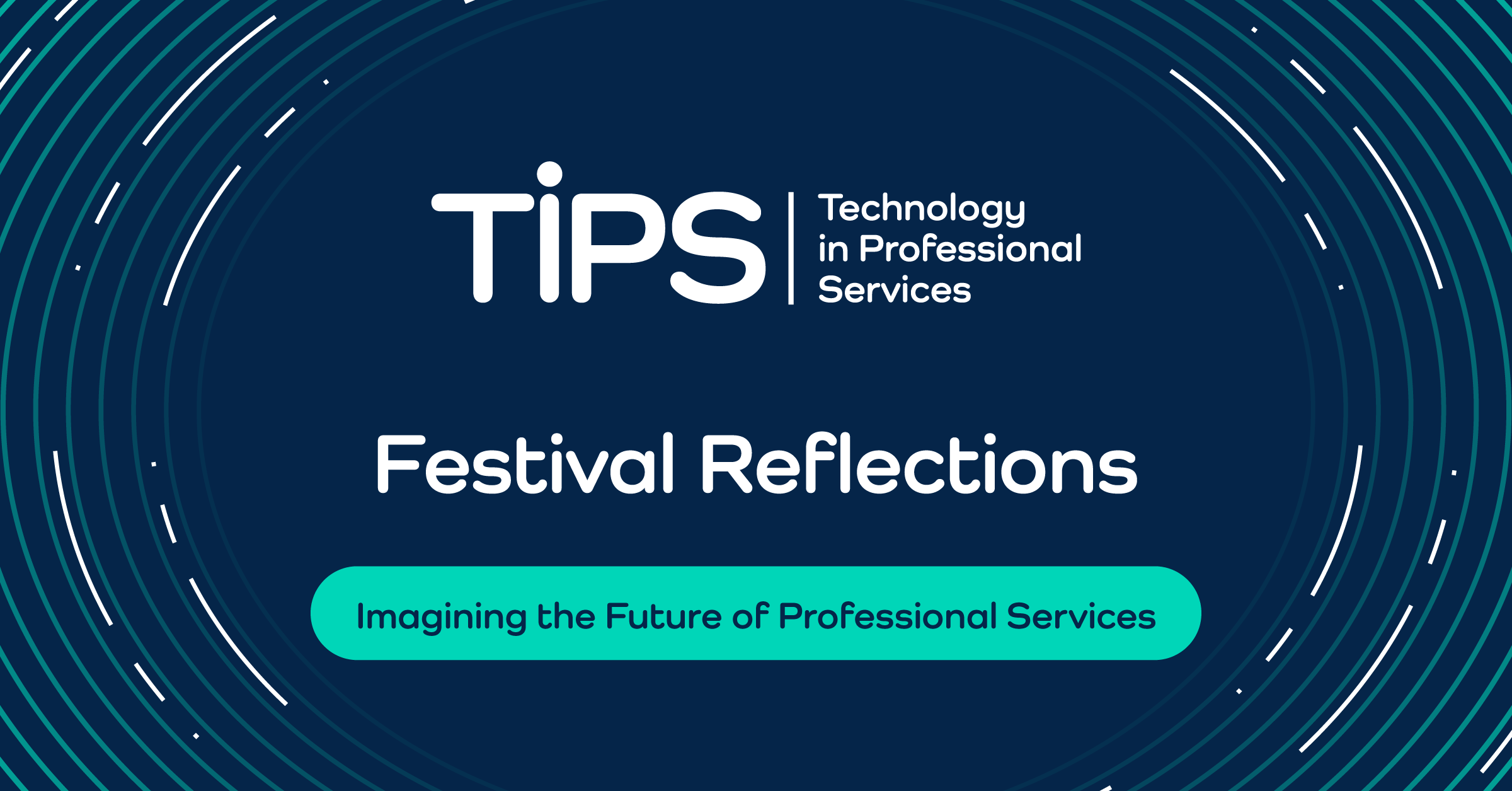TiPS Project | Sponsored by ESRC UKRI and Innovate UK
This year’s TiPS Festival, witnessed a timely and provocative webinar: “Imagine There’s No Lawyers.” Far from advocating the disappearance of professions, the session encouraged us to think critically and creatively about the evolution of professional services – especially within the legal and accounting sectors where there are so many small and medium sized enterprises (SMEs) thinking about to engage with and advance their digitalisation strategies.
Longstanding commentator, Professor Richard Susskind has, over many years, somewhat provocatively suggested that technology- and more specifically, Artificial Intelligence (AI) – will ultimately render professional expertise obsolete. And yet, law and accounting firms continue to play a central role in economic and civic life. A pertinent question today, the event heard, is not whether these professions will persist, but in what form, and with what purpose.
The imaging futures session brought together foresight practitioners, horizon scanners, and leaders from emergent technology-enabled professional service organisations: Simone Boekelaar, Head of Horizon Scanning, Innovate UK; Dr Tara Chittenden, Foresight manager, Law Society of England and Wales and Paul Madden, Chief Marketing and Client Experience Officer, The MAPD Group. Together, we explored a range of potential futures (as provocations rather than as predictions), to help leaders reflect on and prepare for structural shifts already underway.
Six reflections were of particular note:
- From Preservation to Imagination
The future of professional services cannot be built solely on preserving legacy models. As Simone Boekelaar from Innovate UK noted, “I am not here to be right, but to explore.” This subtle shift from certainty to curiosity, may be the key strategic posture for firms facing rapid transformation.
Instead of aiming to become faster or more digital for its own sake, firms might more helpfully ask: What kind of future do we want to be part of? What does success look like in a world where professional identity itself is being redefined?
- Categories of Disruption
Disruption is not just technological, it is, critically social, political and economic. Successful adoption of new tools like Generative AI depends as much on trust, empathy, and cultural readiness to adopt, as it does on technical competence. The way the market for these tools are developed will be central to making this happen: we need moral markets that help technology adopters to make choices that are good for firms, for consumers and for society.
For SME firms, this means managing change with compassion and understanding. Staff need to feel that innovation is happening with them, not to them.
- Bringing Futures Thinking with Firm Practices
Futures thinking is often viewed as abstract and speculative. But it can, and should, be a practical leadership tool. For example, integrating a question like: “If trend X takes hold, how would we continue to generate value?” into strategy discussions and board meetings is a useful starting point.
PESTEL analysis (Political, Economic, Social, Technological, Environmental, Legal) can also help firms systematically scan for emerging shifts relevant to their business models.
A Governments Futures Toolkit can help this supporting SMEs with thinking about the future: https://www.gov.uk/government/publications/futures-toolkit-for-policy-makers-and-analysts/the-futures-toolkit-html
- The Rise of Post-Professional Identities
The idea of a “lawyer” or “accountant” as a fixed professional identity may no longer serve us. The panel anticipated the rise of hybrid roles, for example, legal technologists, ethics officers, compliance designers, especially in firms that reframe client problems more broadly.
This is not about diminishing professional expertise; rather, it’s about adapting to a future where expertise looks different and is deployed differently.
- Designing More Human Systems
As technology becomes more capable, human skills (e.g. judgment, empathy, contextual understanding) become more valuable. As one participant asked: What would it mean to build systems that are not just legal, but ethical and morally inclusive?
For firm leaders, this might involve rethinking how services are designed, who they are for, and how values like fairness and accessibility are embedded into practice.
- Skills for a Complex Future
Looking ahead, the most resilient firms will likely be those that prioritise continuous learning. Fast-paced change requires teams who are not only technically skilled, but also adaptive, communicative, and values-driven.
In particular, roles focused on data stewardship, sense-making, and client relationship innovation will become increasingly vital to the sustained performance of professional services.
A final thought: For SME leaders, the future is not something that we can predict. Rather it’s something we can collaboratively and reflexively design together – bring together all the experts to do so. Reimaging work and professional services starts, by embracing the imagination of our leaders and developing futures thinking as a strategic disciplined practice that becomes part of our organisational routines.
We would like to extend our sincere thanks to the speakers and participants who made this conversation possible, and to all those who continue to ask the difficult, hopeful questions about the future of professional life.
Watch the full session below:

